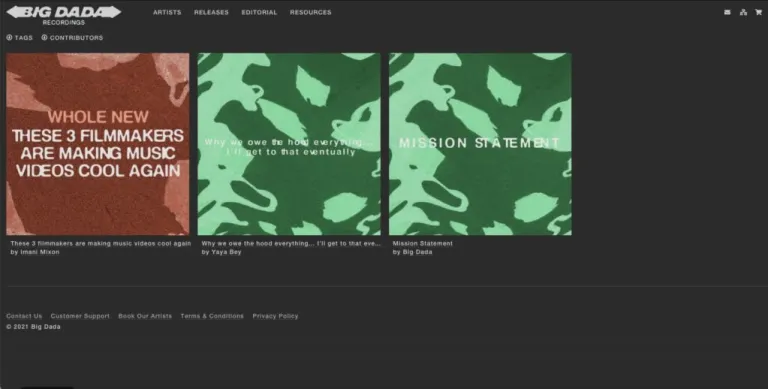
Earlier this year, British hip-hop, dub and grime label Big Dada (which sits within Ninja Tune) had a major overhaul.
“Big Dada is relaunched as a label run by Black, POC & Minority Ethnic people for Black, POC & Minority Ethnic artists [for lack of a better term],” it said. “Working to amplify Black and racialised artists voices, Big Dada looks to shift the narrative around this music, bypassing stereotypes to allow and encourage freedom to express oneself for who they are and want to be.”
It also stated that it would sell merchandise from sustainable clothing company Rapanui.
Continuing its evolution, it has launched a new editorial series on its website that features essays from Black and POC writers.
It took its lead from a one-off essay earlier in the year from New York musician Yaya Bey (Why we owe the hood everything… I’ll get to that eventually) that looked at intersectionality to “see how our oppression may overlap”. She wrote, “Because we’re living in a capitalist, imperialist patriarchal wasteland, we’re basically in the fucking hunger games, everyone is privileged at the expense of someone else.”
Big Dada decided to make posts like this a regular feature. It followed this up with a post by Imani Mixon (These 3 filmmakers are making music videos cool again) that singled out Andre Muir, Morgan B Powell and Sean Frank for praise.
Mixon will be joined by Ash Lauryn and Stephanie Phillips – with the three of them each writing four pieces for the site through the year.
Big Dada also set up a resources page on its site listing bodies that can offer mental health support (highlighting ones specialising in Black mental health) as well as guidance on applying for funding and grants, legal advice and links to wider music industry services and organisations.
This is a powerful use of a label site that goes way beyond simply promoting itself or its acts, finding ways to help and support the creators that make up its community.